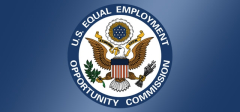 User-friendly documents for employers, job applicants, and employees explain laws governing the acquisition and use of personal background information
User-friendly documents for employers, job applicants, and employees explain laws governing the acquisition and use of personal background information
WASHINGTON – The U.S. Equal Employment Opportunity Commission (EEOC) and the U.S. Federal Trade Commission (FTC) has co-published two technical assistance documents that explain how the agencies’ respective laws apply to background checks performed for employment purposes. One document is for employers; the other is for job applicants and employees. This is the first time that the two agencies have partnered to create resources addressing concerns in this key area. The documents are available on the EEOC’s website: Background Checks: What Employers Need to Know and Background Checks: What Job Applicants and Employees Should Know.
The agencies emphasize that employers need written permission from job applicants before getting background reports about them from companies in the business of compiling background information. Furthermore, they reaffirm that it is illegal to discriminate based on a person’s race, color, national origin, sex, religion, age (40 or older), disability, or genetic information, including family medical history, when requesting or using background information for employment, regardless of where the information was obtained.
At the same time, the agencies want job applicants to know that it is not illegal for potential employers to ask about their background, as long as the employer does not unlawfully discriminate. However, when people are turned down for a job or denied a promotion based on information in their background reports, they have the right to review the reports for accuracy.
“The laws enforced by the EEOC and the FTC intersect on the issue of employment background checks, so this was a unique opportunity for the agencies to work together to provide user-friendly technical assistance to our stakeholders,” said EEOC Legal Counsel Peggy Mastroianni. “The No. 1 goal here is to ensure that people on both sides of the desk understand their rights and responsibilities.”
“The FTC is pleased to work with the EEOC to help ensure that employers and potential employees have a solid understanding of their rights and responsibilities,” said Jessica Rich, director of the FTC’s Bureau of Consumer Protection.
The EEOC enforces federal laws against employment discrimination; more information is available at www.eeoc.gov. The FTC enforces the Fair Credit Reporting Act, the law that protects the privacy and accuracy of the information in credit reports. More information is available at www.ftc.gov.



